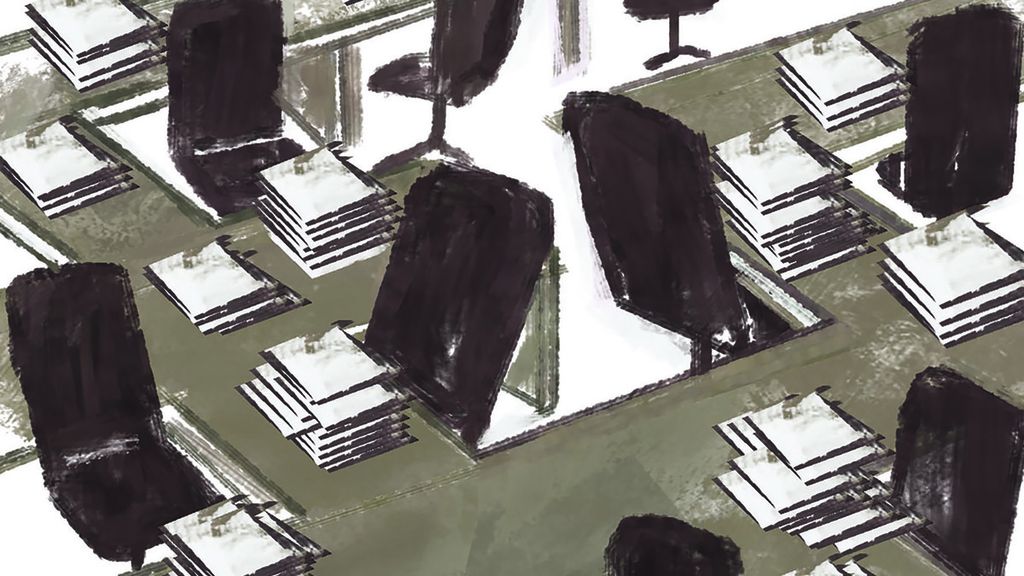The Burden of Regional Autonomy
We still have time to prevent regional instability as long as the policy revision is made from now.

Politics is like the inner tire in a bicycle. It can expand and deflated.
In the election season it expands because people pump it to the fullest, so the bicycle can go fast to win the race. It then shrinks again slowly after the democratic celebration is over. Now, in the political year of 2023, the political tire is beginning to expand. The pressure will reach its peak in the 2024 election year.
The first peak will be during the simultaneous elections of the president and legislative on 14 February to elect the president as well as 580 members of the House of Representatives, 152 members of the Regional Representatives Council, 2,372 members of the Provincial Legislative Council and 17,510 members of the regency and city DPRD.
The second peak will be 27 November, the time to choose 37 governors, 93 mayors and 415 regents. Except in the Special Region of Yogyakarta (DIY), where residents only vote for regents and mayors because the governor there is determined by the DPRD from the sultan and, on the contrary, in Jakarta, where residents only chose the governor because the mayor/regent is appointed by the governor.
Also read:
> Regional Elections and Effectiveness of Regional Governments
> Democracy, Law and Acting Regional Heads
Inevitably, politics becomes the number one priority. Affairs outside of politics, such as improving public services, improving the welfare of the people and spurring the economy will be ruled out. Unfortunately, political fever lasts a long time, for more than two years, because we are too ambitious and are carry out all elections in the same year. Events like this, if there are no changes in policy related to the election, will repeat again in the 2029 election. This is clearly not an ideal election schedule model.
In the context of local democracy, the burden of regional autonomy in the "frenetic" of politics, especially to create stability in the government, is heavy. Since the beginning of 2023 until the day of voting on 14 February 2024, members of the DPRD who nominate themselves again, and regional heads whose parties carry the prospective presidential candidates or who are running themselves will mobilize all their strength to seek victory.
This situation will continue until 27 November 2024, the day when the position of all regional heads, totaling 545, will be determined in the voting booths. Various political activities will take up their time. The lobby and party meetings with the central and regional governments will be very intensive.
The burden of regional autonomy in the "frenetic" of politics, especially to create stability in the government, is heavy.
Visits to the electoral districts to greet constituents will also increase rapidly. That means these heads’ daily tasks can no longer be carried out optimally. The council meetings are difficult to reach the quorum and regional heads are busy garnering votes or campaigning so their tasks are forced to be carried out by regional secretaries or acting regional heads.
Not to mention the inter-elite friction from both internal and external parties, due to the heat of the intercandidate competition. Moreover, if the regional heads and deputies plus the regional secretaries advance together to seat number one, the local government bureaucracy will split into three. The conflict can even spread to the community, within various mass organizations up to the villages. The atmosphere becomes increasingly fraught if identity politics is capitalized.

During the presidential, legislative and regional head election campaigns up to polling day, the burdens of regional stability will increase if the election organizers and security forces cannot work professionally and proportionally due to lack of training and shortage of financing provided by the state. This will also increase if the candidates involve civil servants (ASN) and the village heads.
In addition, specifically related to D-day of the regional elections on 27 November 2024, or 37 days after the new president is inaugurated, the capacity of the government with its new Cabinet to consolidate power to keep the election safe is certainly still very limited, which yet again has the potential to threaten the stability of the regions from Sabang to Merauke.
We definitely do not want all these nightmares to happen. So, in order to prevent this regional instability, these three cases need to be immediately resolved by the administration of President Joko “Jokowi” Widodo, namely the transparent appointment of (acting) regional heads, the provision of adequate financing for general elections and regional elections and the preparation of high profile security strategies.
Appointment of acting regional heads
Since the appointment of 101 acting regional heads from civil servants by the government in 2022, the national simultaneous local election schedule has begun. The marker is the elimination of the 2022 and 2023 wavy elections, and the filling of the regional head positions with acting officers who serve until the inauguration of the elected regional heads in the national simultaneous local elections on 27 November 2024.
There is little news about the acting officers apart from the noise surrounding the appointments. This is far from being transparent and accountable, and has not encouraged the government to make a strong and complete regulatory umbrella according to the decision of the Constitutional Court (MK).
Now, throughout 2023-2024, 170 acting heads will also be appointed to replace the definitive regional heads, including the replacement of the three governors of the most densely populated provinces in Java, namely Ridwan Kamil (West Java), Ganjar Pranowo (Central Java) and Khofifah Indar Parawansa (East Java). Twenty-four regions with a total population of 240,324,240 (89 percent) will be led by the acting governors.
Also read:
> Homework for Regional Autonomy in 2022
> Regional Autonomy Agenda 2021
The key to the stability of the regions is in the hands of acceptable regional heads. The regions will be safe and peaceful if the acting heads are qualified and experienced in government. The appointment of acting officers, which is full of controversy such as the selection of from active army/police personnel, which does not involve the DPRD and does not accommodate the governors' proposal, should be ended.
To do this, the government shoukd issues a new Governmental Regulation (PP) to replace the old PP, namely PP No. 6/2005 and PP No. 49/2008 related to the appointment of the acting regional heads, which was already out of date as it was based on the Regional Government Law No. 32/2004 that is no longer suitable.
In fact, now the regional election regulation, with all its knick-knacks, has been separated through the law itself, namely in Law No. 10/2016, which is no longer integrated in the Regional Government Law. After all, the Home Affairs Minister regulation draft, which regulates the acting regional heads due to the vacuum of power has been made by the Home Affairs Ministry (Kompas, 7/1/2023). So, it just requires modifying it into the PP format. The DPR, DPD and the Indonesian Ombudsman institutions need to urge the government to not evade issuing the PP.
Elections financing
The successes of the general and regional elections is in part determined by the adequate support and timeliness on the part of the government. Do not let the cost of the General Elections Commission (KPU), Elections Supervisory Agency (Bawaslu) and Election Organization Ethics Council (DKPP) be lacking or late for disbursement. Indeed, democracy is expensive, but the government is obliged to facilitate and support it so that it can run well.
The agenda of selecting leaders periodically every five years should not be delayed because the state is "broke". The term “tak ada kayu, jenjang dikeping” (when pressed, objects that cannot be used anymore are useful) is relevant here, so the government should be determined. It should not let the KPU owe to finance the elections so that there will be a national upheaval.

From the beginning, the provision of 2024 elections costs was worrying. The discussion of KPU's proposal of around Rp 100 trillion (US$6.68 billion) from the government and the DPR dragged on. Finally, after being made efficient, it was approved at Rp 76.6 trillion. However, the funds allocated in the 2023 State Budget are only Rp 13 trillion (20 percent). That means the rest will be budgeted in the 2024 State Budget, yet the general elections are held in February 2024, not April or July such as the practice so far.
The argument of large costs incurred in the year of the elections is apparently not valid given the tight time. Therefore, it is better for the 2023 Revised Budget to include an additional election fund at least 40-50 percent more from the established ceilings.
In the future, election costs do need to be rationalized because the increase can be large. In the 2014 elections the cost was Rp 15.62 trillion, the 2019 elections rose to Rp 25.59 trillion and the 2024 elections skyrocketed to Rp 76.6 trillion. Our election costs per capita are relatively high in the world. Besides, isn’t the election unification to reduce costs?
Also read:
> Change Central and Regional Approach
The same phenomenon occurs in the local elections. Simultaneous local elections in 269 regions implemented in 2015 cost Rp 7.09 trillion from the Regional Budget (APBD). However, in 2020, the simultaneous local elections in 270 regions rose significantly to Rp 20.46 trillion. As a result, the average public service budget in the regions falls significantly because much is being spent on local election costs.
In the national simultaneous local elections in 545 regions in 2024, where the APBD had to be set in 2023, the election costs could be more than Rp 40 trillion. Of course public services again become the victim, such as damaged roads that cannot be repaired, or collapsed school buildings that cannot be renovated. Therefore, it is better for the regional election funds to be charged to the State Budget (APBN). Considering the average fiscal capability of the regions is weak, the local elections have entered the general elections regime, the organizer of the local elections is the national KPU.
Empirically, the burden of the regional election costs on the APBN has been regulated in Election Law No. 1/2015, which has unfortunately been changed by the Election Law No. 8/2015.
Security strategy
This country has never held presidential elections, legislative elections and regional elections simultaneously at the national level for the governors/regents/mayors in the same year. The simultaneous local elections of all regional heads will be carried out when the president, along with his Cabinet, is only five weeks old, which is certainly not enough time for him to be able to consolidate his power from the undermining of the losers.
The quality of local election security by the National Police supported by the Indonesian Military (TNI) so far is more dependent on the the APBD. If the APBD is large, the safety package is complete. Conversely, in regions with a small APBD, the security is limited, or nicknamed “save packages”. This measuring is certainly wrong. The security of the local elections should be based on security risks, not the size of the APBD. The impact of such a budgeting model can be seen from the casualities in our regional elections. The total number of victims who died at the national level was 75 people, 230 suffered from minor injuries and 279 houses were damaged by the escalation of conflict during the local elections (Djohan, 2018).
The 2024 colossal local election security strategy should be made high profile and risk-based. Where regions are highly conflict prone (high risk), the security must be complete, no matter what the APBD is. This should include the mobilization of security forces from outside the region. Consequently, the cost of securing the local elections is inherent with the cost of organization provided from the ABPN. However, the budget post should be come directly from the police, while the organizing budget from the KPU, no longer from the APBD grant.
We still have time to prevent regional instability as long as the policy revision is made from now. With the completion of these three tasks by the government, regional stability can be maintained.
/https%3A%2F%2Fasset.kgnewsroom.com%2Fphoto%2Fpre%2F2019%2F10%2F09%2F99e88db3-e089-43ed-935d-7d4b01e044f9_jpg.jpg)
Djohermansyah Djohan
Djohermansyah Djohan, Regional Autonomy director general of the Home Affairs Ministry 2010-2014, professor of the Institute of Public Administration (IPDN), and president of the Regional Autonomy Institute (i-OTDA)
This article was translated by Hyginus Hardoyo.